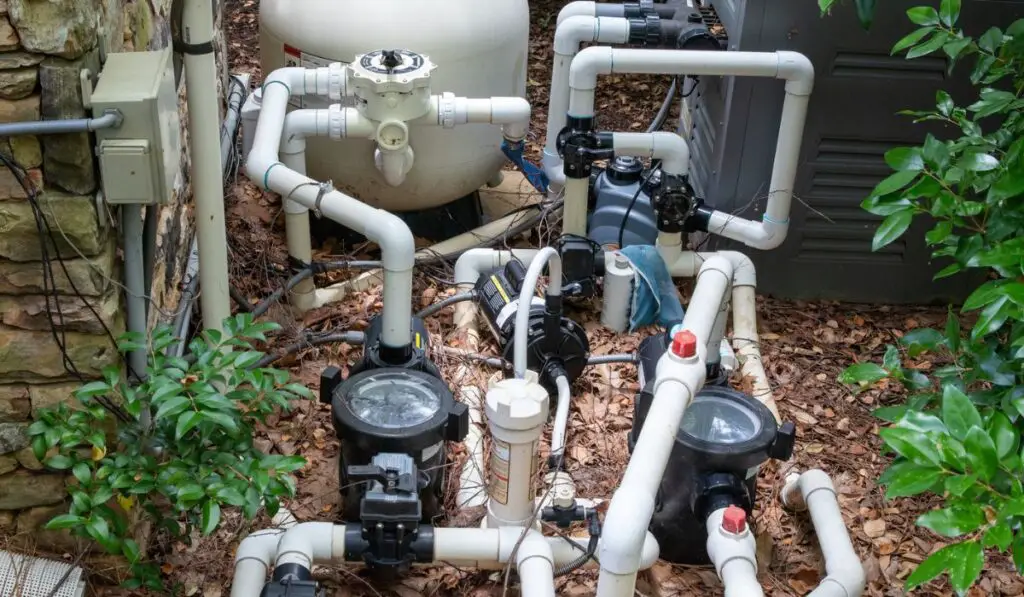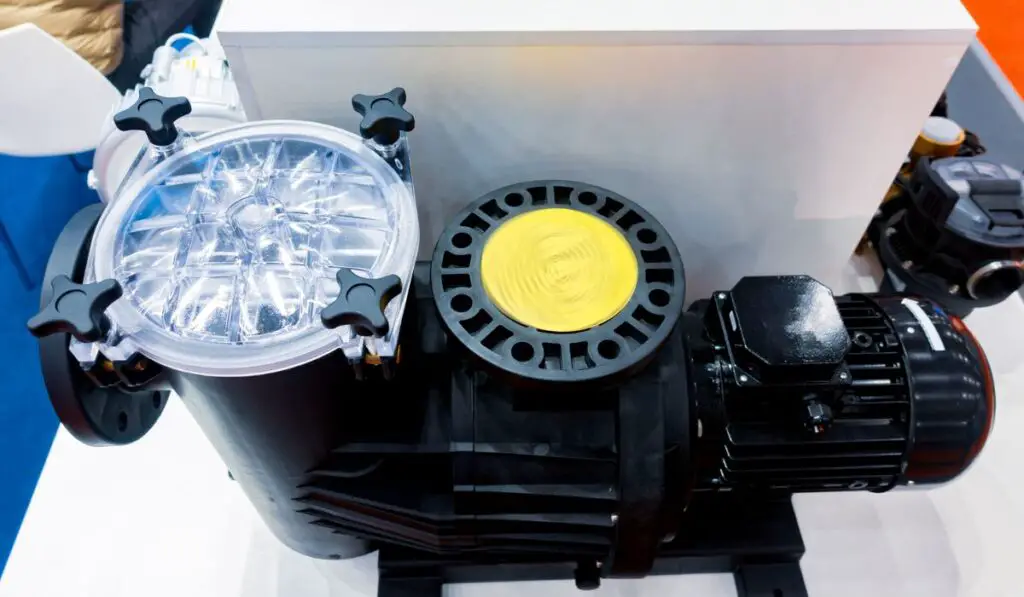Your pool pump is the very heart of your swimming pool, helping keep it clean and functional on a daily basis. However, just like any mechanical device, your pump and the motor inside it can deteriorate after some time. So, if you’re hearing strange sounds coming from the pump, does that mean that you should replace the motor or the entire pool pump?
You should replace your pool pump if you don’t hear anything after turning it on or you notice dry or cracked housing. However, if you hear a grinding noise or a pop and click sound, then it’s better to replace the motor. Replacing the pump can cost anywhere from $500 to $800.
Before you proceed, it’s important to compare the cost of a new motor with the cost of replacing the entire pump. Motor repairs can cost around 60% to 70% of the cost of a brand new pump, so it’s sometimes better to replace the entire system. Let’s look at the difference between a pump and a motor, how you can identify a bad pool pump, and whether you should opt for pump or motor replacement.
Is a Pool Pump and Motor the Same Thing?

A pool pump and its motor are related, but they’re not the same thing. The pump is a mechanical device composed of two distinct parts: the electric motor and the “wet end”.
Wet End
The outer component of the wet end is the housing or the hull of the pool pump. This is the part that holds all the internal components, and the electric motor itself bolts to it. The pool pump’s guts are composed of impellers, strainer baskets, diffusers, and gaskets.
The pump’s wet end is composed of all these parts that actually touch the water (hence “wet”), but without a motor to power them, they’re just pieces of sturdy plastic. The component that drives the pump and makes it come to life is the electric motor.
Electric Motor
The motor drives the pump’s wet end, both literally and figuratively. The shaft of the pool pump reaches a speed of up to 3,450 RPM, which turns the impeller and draws water from the various drains in your pool. The pump then passes the water through the filter before pushing it back out into the pool.
Pump motors are enclosed in a steel cylinder and are usually black in color. However, some models are also almond or gold-colored and bolted to the back of the pump’s wet end.
How Do I Know if My Pool Pump Is Bad?
Your pool pump keeps water flowing and ensures that it’s filtered properly. So, if you notice any leaky parts or weird sounds from your pool pump, it’s important to address and fix the issue as soon as possible.
There are a few other signs of a bad pool pump, including but not limited to:
- The pump doesn’t turn on.
- The pool pump runs but doesn’t suck in water.
- The pump is leaking.
- The pump makes a lot of grinding or screeching noises.
- The pool pump sucks in air instead of water.
- The pump basket doesn’t fill with water.
Replacing a Pump Motor vs. the Entire Pool Pump
It’s extremely important to understand the difference between a faulty motor and a faulty pool pump. Replacing the entire pool pump can be twice or even four times as expensive as replacing the pump motor.
Let’s look at how you can differentiate the two, so you can make the correct decision without spending any more than you need to.
Replace the Entire Pump
It’s extremely easy to identify a faulty pool pump. You’ll either hear nothing at all or you’ll be able to see cracked or rotted housing inside the pump. Keep in mind that a properly functioning pump runs quietly, so you’ll be able to recognize a problem as soon as you switch on your pump’s power.
Replace your entire pool pump if you see any of the following problems:
Silence
If your pool pump doesn’t make any noise, then it may be irreparable. Silence usually means that absolutely nothing is working, but it could also be a sign of a disconnected wire or an out-of-place gasket.
If the pump doesn’t turn on even after you ensure that the gaskets and wires are in their proper places, then it may be completely dead, necessitating a complete replacement.
Rotted, Cracked, or Dry Housing
It’s best to open up your pump’s housing and ensure everything looks normal. If you see any cracked or dry housing around the edges or notice rust, leaks, or discoloration, then it’s time to replace the entire pool pump.
Make sure you also check the lines and cables for any fraying at the end. It’s also advisable to replace the entire pump system if you see any rusted bolts or leaking fluid.
Replace Only the Motor
There are a few cases where you’ll just need to replace the pump motor instead of the entire pool pump system. Some of the signs that indicate a problem with the motor include:
Grinding or Screeching
Your pool pump motor should produce a gentle humming sound during operation. If the motor starts to grind or screech, then something is definitely wrong.
One reason behind the screeching sound could be bad bearings, especially if water enters the casing. Fortunately, bearings are pretty cheap, and you can even replace them yourself.
However, if you notice that the bearings have seriously damaged the shaft or there are more complex problems causing the extreme noise, then it’s better to replace the entire motor.
Loud Hum
Pool pumps that produce a noticeable hum have bad capacitors. Most pumps are equipped with two capacitors — one that turns on the pump and one that drives it.
Capacitors usually blow when the pump motor overheats or when there’s a power surge. You can replace the capacitor yourself, but if you don’t know your way around a pump, then it’s better to hire a certified technician.
Pop and Click
If you hear a pop and click, then it’s a sign that you need to replace your motor. This sound indicates that the motor tripped the circuit breaker and that it requires too much energy to turn on.
However, make sure you also check the pump’s electrical connections for any bigger or more complex problems.
How Much Does It Cost to Replace a Pool Pump?

A new pool pump costs around $500 to $800, depending on the model you purchase. Less expensive options like this one (on Amazon) can be plenty of pump for a smaller, above-ground pool. However, if you hire a pool technician for installation, then the price will probably double.
If your pool pump is really old and the technician needs to do a bit of retrofitting before installation, then the cost could rise even more.
Most pool repair jobs take an entire afternoon or a few days, depending on the complexity of the problem. Some pump replacements also require a bit of electrical work, so you may need to hire an electrician to keep your home and yourself safe.
